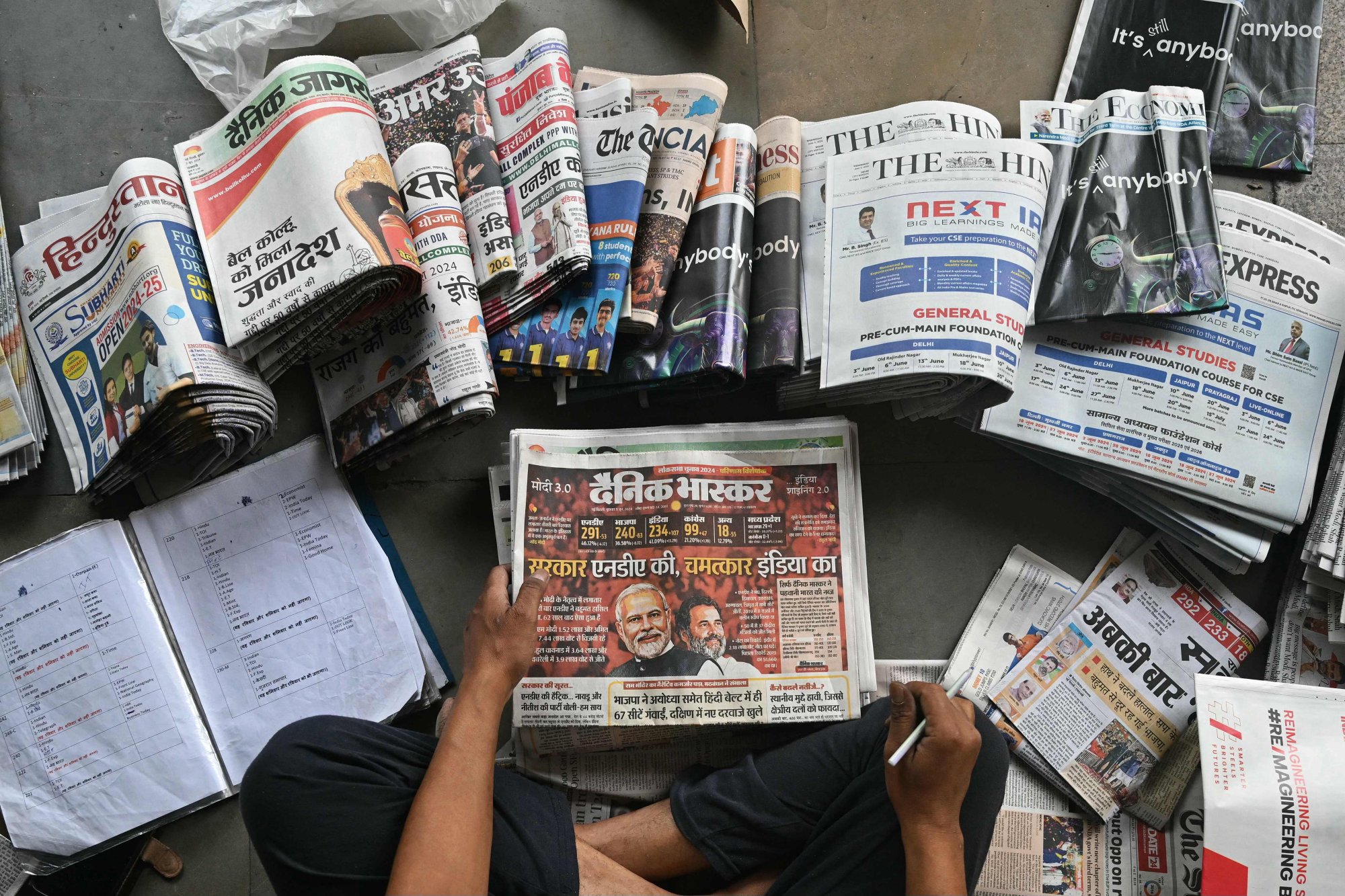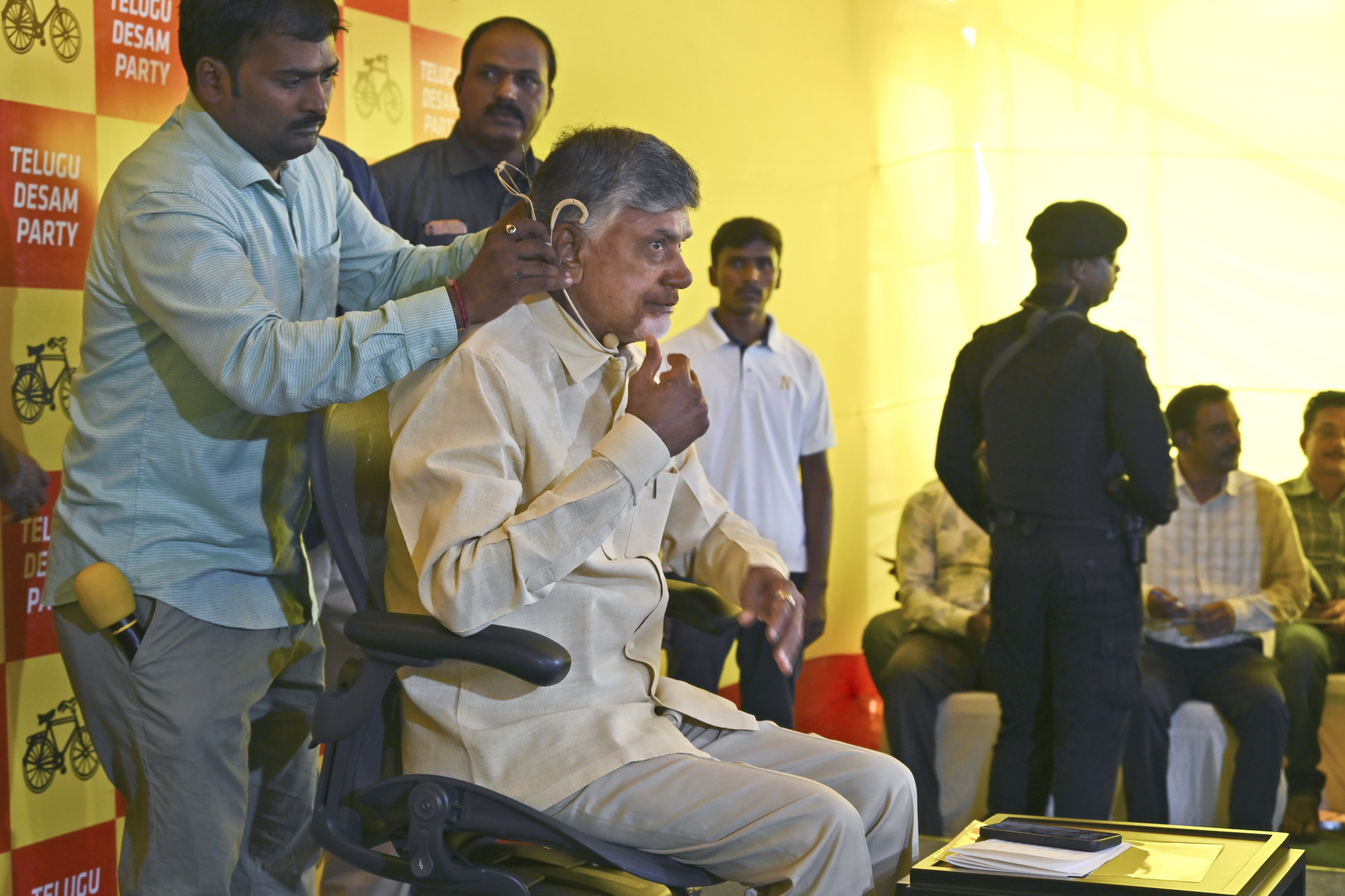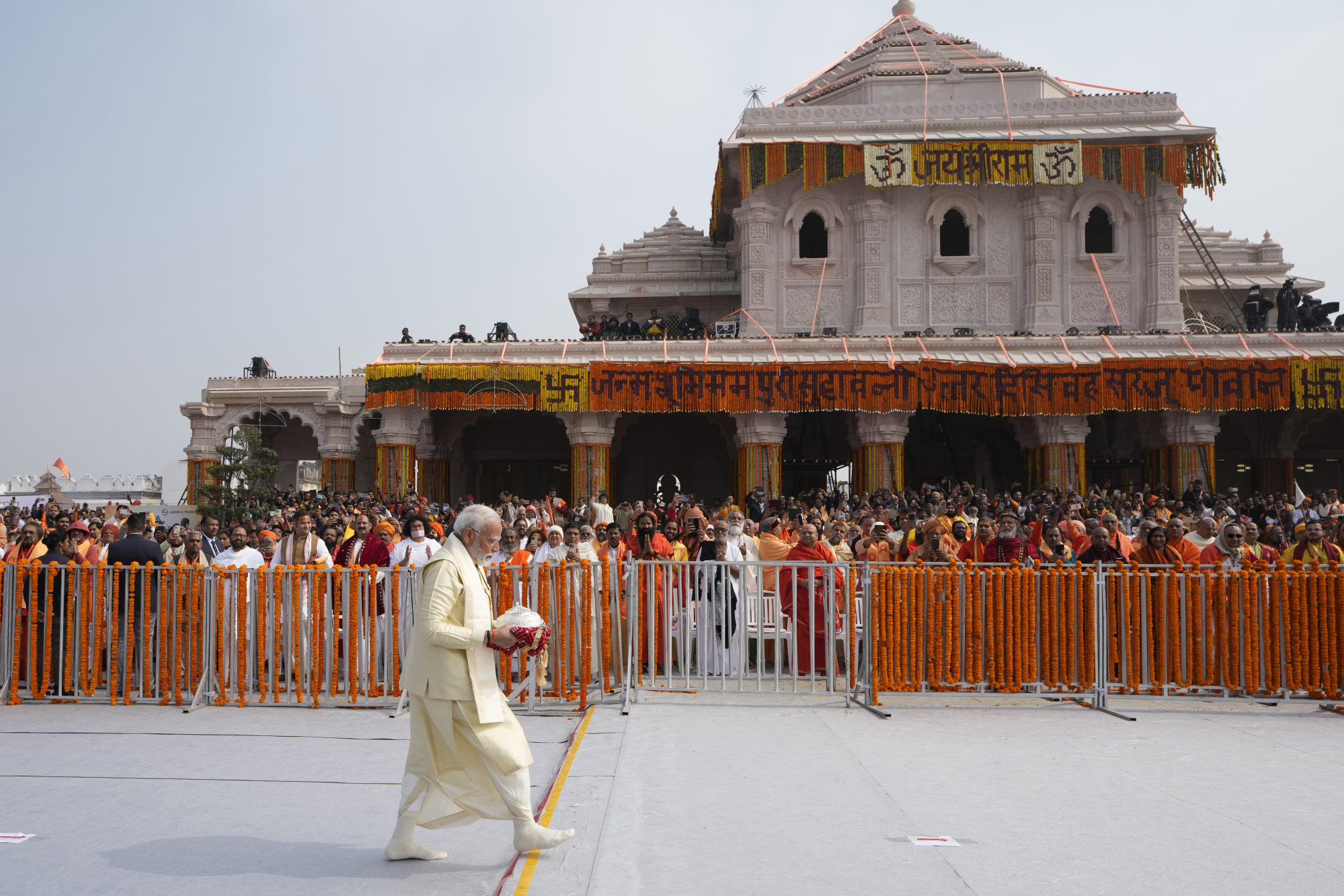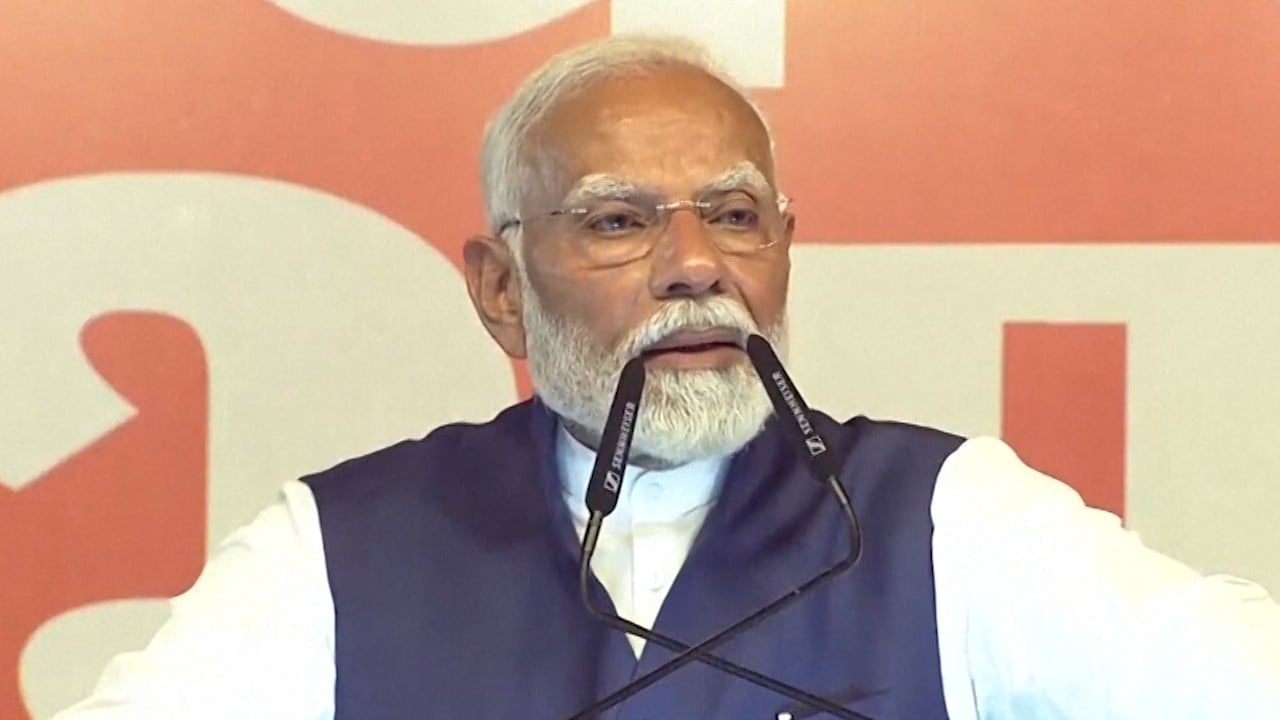“If things do not work under Modi, then there will be pressure on him to step down. He will have to become a new Modi,” he said. “It will be tough for him because he has never done that before.”

The BJP secured only 240 seats in this election, far short of its target of 370 seats and far fewer than the 303 it won in 2019. The party suffered its most surprising reverses in its Hindi-speaking heartland states.
To reach the 272 seats required for a majority to form the new government, the ruling party had to rely on its coalition partners in the National Democratic Alliance (NDA), which collectively secured 293 seats.
On Wednesday, party representatives of the NDA met at Modi’s house in New Delhi to discuss the formation of the next government.
“We all unanimously choose respected NDA leader Narendra Modi as our leader,” a BJP-issued alliance statement said after the meeting.
It said the NDA government would “preserve India’s heritage” and work for the “all-round development of the country”.
Indian media reports said Modi would be sworn in as prime minister on Saturday.
Modi’s most pressing political concern now, is maintaining the support of two veteran regional leaders who have had past differences with him in the past: Chandrababu Naidu of the Telugu Desam Party, whose stronghold is the state of Andhra Pradesh, and Nitish Kumar of Janata Dal United, which is influential in Bihar.
However, Ajay Darshan Behara, an international studies professor at Jamia Millia Islamia University in Delhi, said even with Naidu and Kumar committing their parties to backing Modi for a third term, the prime minister’s strong personality could lead to future clashes.
“What happens with Modi is that he overshadows people. He wants to be centre stage even in photographs,” Behara said.
In terms of political experience, both Kumar and Naidu are senior to Modi, who was Gujarat state’s chief minister for 15 years before becoming prime minister 10 years ago.
Kumar has served multiple terms as Bihar’s chief minister and held several ministerial positions in the central government. Naidu is respected for pioneering digital infrastructure programmes in Andhra Pradesh, a model followed by other states.
Unlike the Hindu nationalist BJP, neither Janata Dal United nor Telugu Desam Party has tried to tap into the religious sentiments of the majority Hindus for political gain.
Instead, Kumar is known for his close ties to the minority Muslim community in Bihar, while Naidu’s campaign promised to include education and job reservations for Muslims in Andhra Pradesh.

In stark contrast, Modi’s campaigns often criticised Congress’ reservation policies for Muslims, accusing it of appeasement for votes.
Those setbacks came despite the high-profile inauguration of a temple to the Hindu god Ram at the site of a disputed mosque in Ayodhya in Uttar Pradesh, which Hindus believe to be the deity’s birthplace.
Modi presided over the nationally televised inauguration ceremony in January, which was expected to strike a chord with the country’s majority Hindus as a powerful testament to the BJP’s commitment to Hindu nationalist ideology.
However, analysts say rising living costs and unemployment, which were central issues for Congress’ campaign, were ultimately more pressing concerns to many voters.

Shift in political fulcrum
It was not all bad news for the BJP, as it partly made up for some of the losses in its traditional northern stronghold areas with gains in southern states such as Andhra Pradesh, Telangana and Kerala.
The BJP would be forced to rethink its strategy of religious divisiveness following its unexpected gains and losses, said Kingshuk Nag, an author and independent political commentator.
“The fulcrum of Indian politics may shift to south India, and that will have its own definite implications. In south India, Hindus and Muslims have better relations than north India,” Nag said, adding that issues such as the construction of a Ram Temple had typically mattered less to people in the south.
Modi was once shunned internationally because of deadly religious riots, in which mainly Muslims were killed, that took place in Gujarat while he was the state’s chief minister in 2002. He is also known for honing his oratory skills as a full-time propagandist for the Hindu nationalist Rashtriya Swayamsevak Sangh, a paramilitary organisation closely affiliated with the BJP.
The electoral setback could mean the BJP would hold back on advancing its Hindu agenda over two disputed sites – the Gyanvapi mosque in Varanasi and the Shahi Idgah mosque in Mathura – similarly to what it did in Ayodhya, Mukhopadhyay said.
Opposition parties have accused Modi of undermining India’s secularism and democratic traditions, saying authorities have clamped down on opposition political leaders, NGOs and human rights activists. The BJP has denied the charges.
“The new government will have to be more inclusive not only about religion, but also be more open to dissent,” Mukhopadhyay said. “They cannot keep on accusing all people who dissent of being antinational.”
Additional reporting by Agence France-Presse, Bloomberg


